Ever noticed how dads in movies and books aren’t just strict anymore? They’re real people with feelings. That’s what got me hooked.
I’m here at Modern Dads sharing my two cents because, as a stay-at-home dad, I’ve seen firsthand how these stories mirror my own journey.
Remember the dad from Finding Nemo? That’s me, minus the ocean adventure.
Diving into stories where dads are more than just the breadwinners, I’ve laughed and cried with characters who remind me of myself. It’s a breath of fresh air seeing dads on screen and in pages dealing with the same parenting puzzles I do.
Real-Life Moments with Emily and Liam
Just the other day, I was reading Harry Potter to Emily and Liam, my dynamic duo of curiosity and chaos. Emily, with her wide-eyed wonder, asked, ‘Daddy, are you like Dumbledore because you know everything?’ Meanwhile, Liam, ever the explorer, was busy trying to cast spells with a makeshift wand.
It was one of those perfect moments, a blend of laughter, learning, and a little bit of magic. Sarah, peeking in from the kitchen, shared a knowing smile that said, ‘You’re doing great.’ In that instant, I realized the true power of storytelling and its reflection on real-life fatherhood. I may not have all the wisdom of Dumbledore, but in my kids’ eyes, I’m their guide through life’s adventures.
This journey of fatherhood, with all its ups and downs, is the story I’m most proud to be part of.
The Early Patriarchs
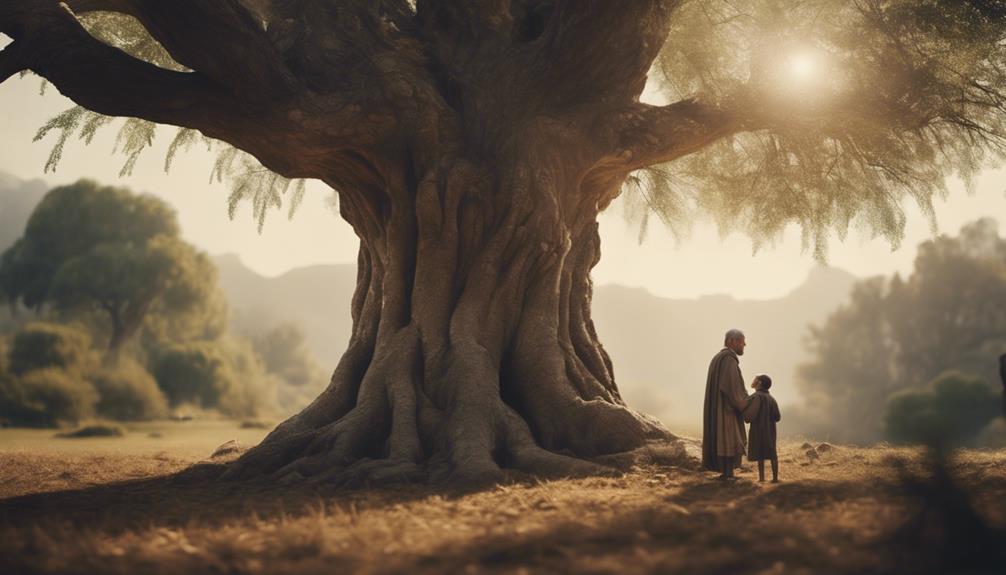
In examining the portrayal of fatherhood, the early patriarchs in literature and film often embody traditional roles, reflecting societal norms and expectations of their times. You’ll notice these characters are typically cast as providers, protectors, and the moral compass for their families. However, this representation doesn’t always allow for a nuanced exploration of their emotions or vulnerabilities. It’s as if these patriarchs are trapped within a mold, one that prioritizes strength and stoicism over emotional depth.
When it comes to top father centric historical fiction, books and movies often portray fatherhood with a mix of accuracy and artistic license. While some stories capture the complexities of fatherhood in historical settings, others may exaggerate or romanticize the role. Overall, historical fiction reads offer various perspectives on fatherhood.
Literary Dads of Classic Fiction
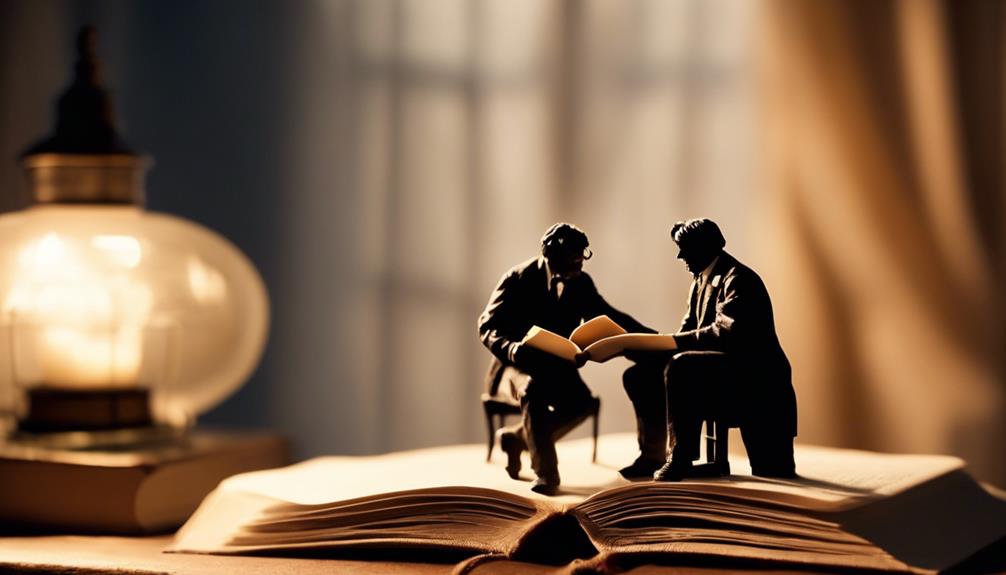
Exploring the realm of classic fiction, you’ll discover that literary dads often serve as pivotal characters, whose roles and complexities significantly influence the narrative and its themes. These father figures aren’t mere background entities; they’re intricately woven into the fabric of the story, often embodying the moral compass, or lack thereof, guiding or misguiding the protagonists on their journeys.
Take, for instance, the stern yet loving Atticus Finch in ‘To Kill a Mockingbird.’ He’s not only the moral backbone of his family but also of the entire narrative, teaching his children and the readers about justice, empathy, and the importance of standing up for what’s right, even when faced with insurmountable odds.
Contrastingly, the overbearing patriarchy of Mr. Bennett in ‘Pride and Prejudice’ showcases a different facet of fatherhood. His indifference and sarcasm contribute to the complexities of the Bennet sisters’ lives, emphasizing the societal constraints placed upon women during the era.
Fathers in Modern Literature
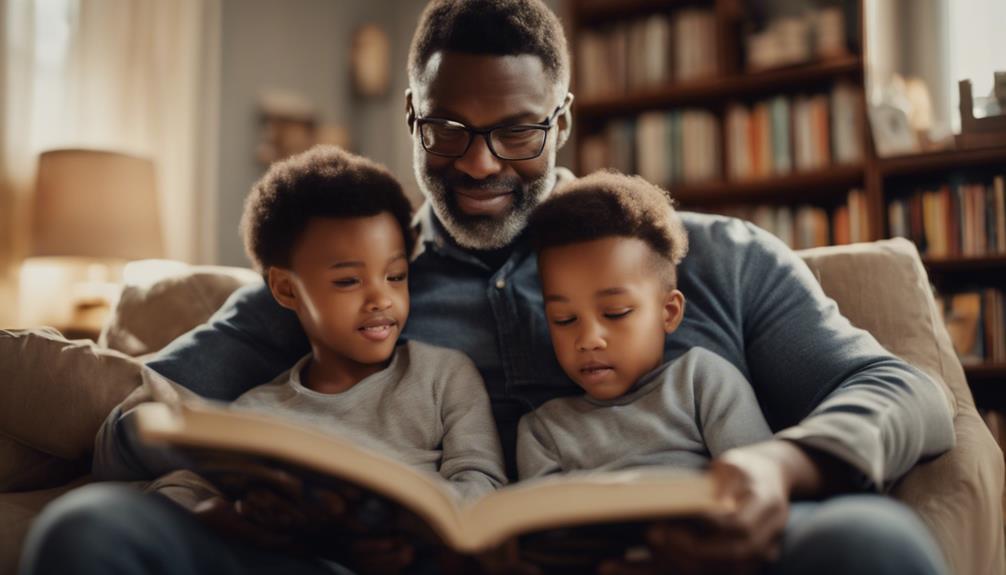
Shifting focus to modern literature, we observe that fathers continue to play crucial roles, yet their portrayals have evolved to reflect contemporary societal values and complexities. This evolution represents a departure from the often one-dimensional characters of the past, embracing a multifaceted view of fatherhood that aligns with current understandings of gender, identity, and familial dynamics.
You’ll find that modern narratives frequently challenge traditional notions of masculinity, offering a more vulnerable and nuanced portrayal of father figures. These characters aren’t merely providers or disciplinarians but are depicted with a depth that encompasses their fears, aspirations, and imperfections. This shift mirrors societal progress towards recognizing the emotional and psychological dimensions of fatherhood, beyond the confines of stereotypical roles.
Cinema’s First Portrayals
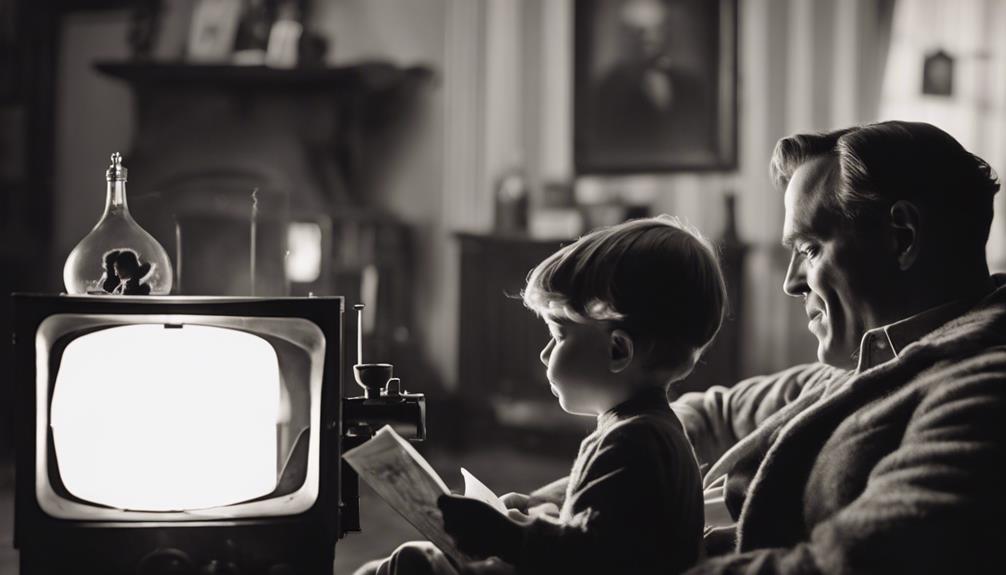
Cinema’s initial depictions of fatherhood offer a fascinating lens through which to examine evolving societal norms and familial roles. In these early portrayals, you’ll find fathers predominantly cast in the role of the breadwinner, a distant, often authoritarian figure whose interaction with his children is minimal and strictly defined by the era’s social expectations. This rigid portrayal serves not just as a reflection of the times but also as a canvas against which contemporary shifts in paternal depiction can be measured.
The Evolution in Film
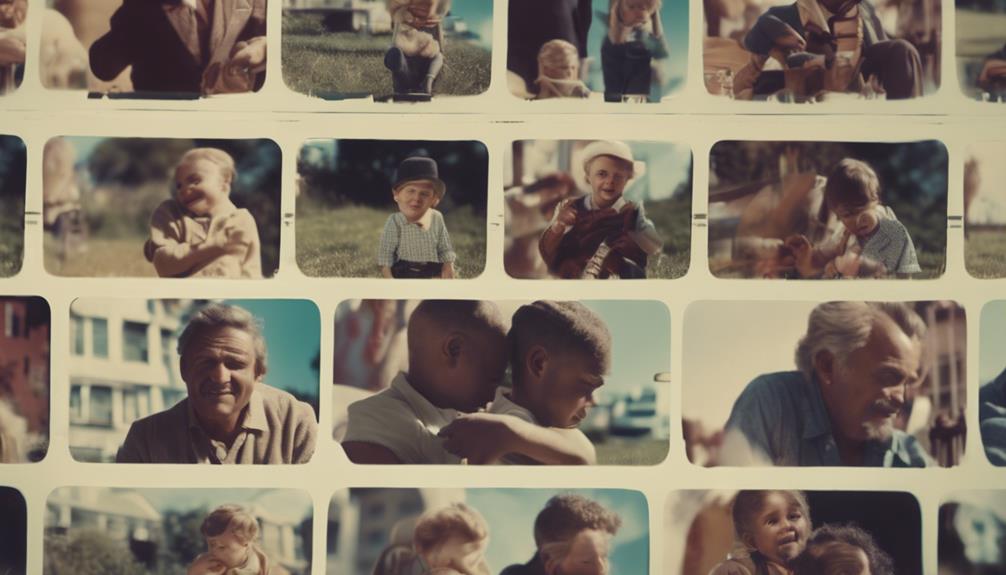
As the years progressed, film’s portrayal of fatherhood underwent a significant transformation, reflecting broader societal changes in understanding paternal roles and relationships. Initially, you’d notice the archetypal breadwinner or the emotionally distant patriarch dominating the screen. These characters rarely delved into the complexities or emotional depths of fatherhood, mirroring the then-prevailing societal norms.
Films began to explore fatherhood with more nuance and depth, breaking away from stereotypes to present fathers as multidimensional beings capable of vulnerability, nurturing, and emotional growth. This evolution mirrors the changing societal expectations of men and fathers, challenging the traditional norms and embracing a more inclusive understanding of masculinity and parenting.
Critically examining this shift, it’s apparent that filmmakers and audiences alike have pushed for narratives that reflect the diversity of fatherhood experiences. From single dads navigating parenthood alone to fathers grappling with complex relationships or personal growth, the modern cinematic landscape offers a richer, more varied portrayal of fatherhood. This change not only enriches storytelling but also encourages a broader conversation about the roles men play in families and society.
Animated Dads
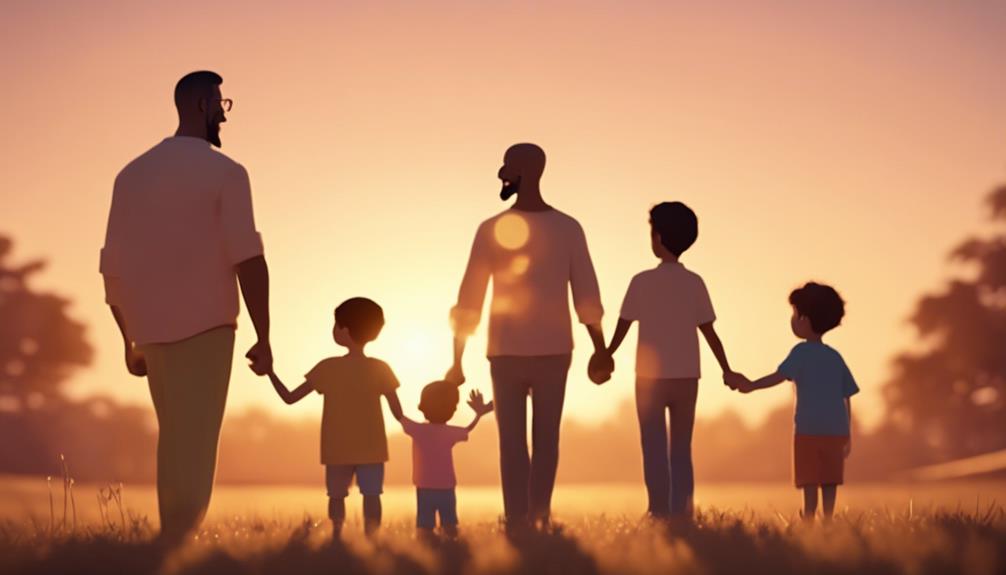
In the realm of animated films, fathers are portrayed with a complexity that challenges traditional stereotypes and invites audiences to reflect on the evolving nature of fatherhood. These characters often embody a mix of vulnerability and strength, breaking away from the one-dimensional portrayals that have historically dominated the screen. Animated dads, from the fiercely protective Marlin in ‘Finding Nemo’ to the inventive and understanding Gru in ‘Despicable Me’, showcase a range of emotions and approaches to parenting that resonate with modern viewers.
The Struggle of Single Fathers
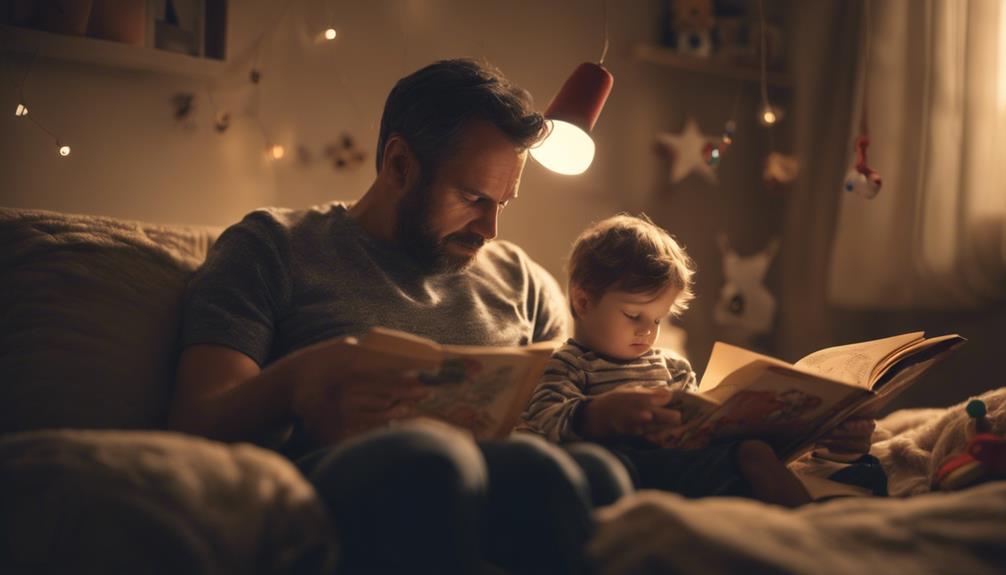
The struggle of single fathers, often depicted through their tireless efforts and emotional resilience, highlights a significant yet challenging aspect of modern parenthood in literature and film. This portrayal serves not only as a narrative device but also as a mirror reflecting societal shifts and evolving notions of masculinity and parental responsibility.
You’ll notice that these characters are frequently constructed around the archetype of the ‘everyman’, thrust into the complexities of parenting solo by circumstances often beyond their control.
There are several books that depict fathers dealing with mental health issues as well. These books explore the struggles and challenges that fathers face while coping with mental health issues. They provide a deeper insight into the impact of mental health on fatherhood and family dynamics, just like in movies about father’s mental health.
Many fatherhood books and movies often depict absent fathers in a negative light, exploring absent fathers in villain origin. They are often portrayed as selfish, irresponsible, and distant, affecting their children’s lives in a detrimental way. These portrayals emphasize the importance of involved and present fathers in a child’s upbringing.
Critically, the representation of single fathers in media underscores a dual narrative: the external battle with societal expectations and the internal journey towards emotional vulnerability and growth. These stories, while diverse, share a common thread in their exploration of the nuanced realities facing single fathers – from the logistical juggling of work and childcare to the deeper emotional labor involved in nurturing a child alone.
Fatherhood and Fantasy
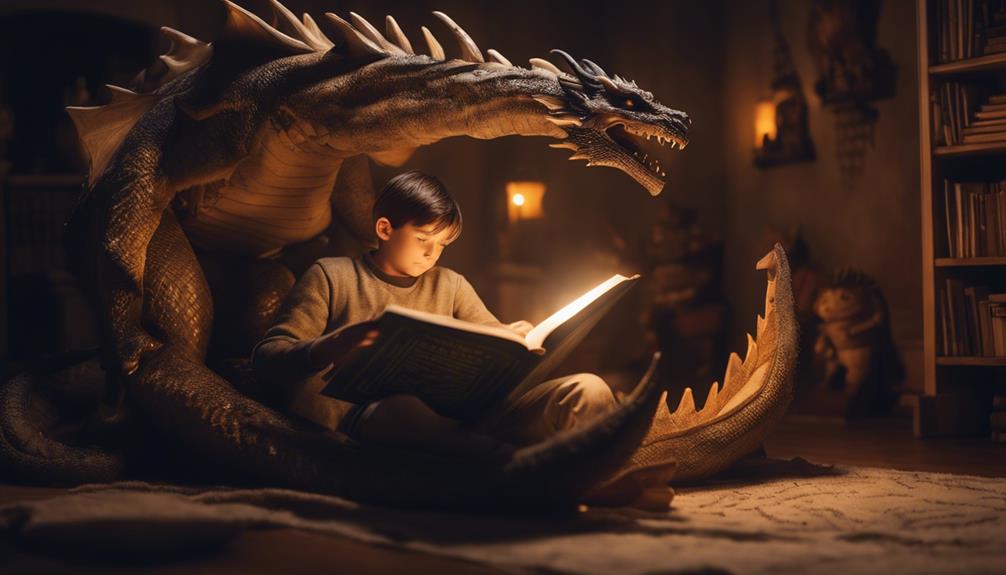
Exploring fatherhood within the realm of fantasy literature and film reveals a dynamic landscape where traditional roles are often subverted or expanded, offering a fresh perspective on paternal bonds and responsibilities. In these fantastical settings, you’ll find fathers who aren’t just protectors and providers but also mentors in magic, guides through mythical lands, and sometimes, the source of the conflict themselves.
Fantasy’s elasticity allows for complex narratives where father figures can embody both darkness and light, often encapsulating the dual nature of humanity itself. They’re tasked with teaching life’s harsher truths alongside nurturing a sense of wonder and moral integrity. This genre doesn’t shy away from depicting flawed fatherhood, where characters grapple with their failures and strive for redemption, providing a nuanced exploration of paternal love and sacrifice.
Sci-Fi Fathers
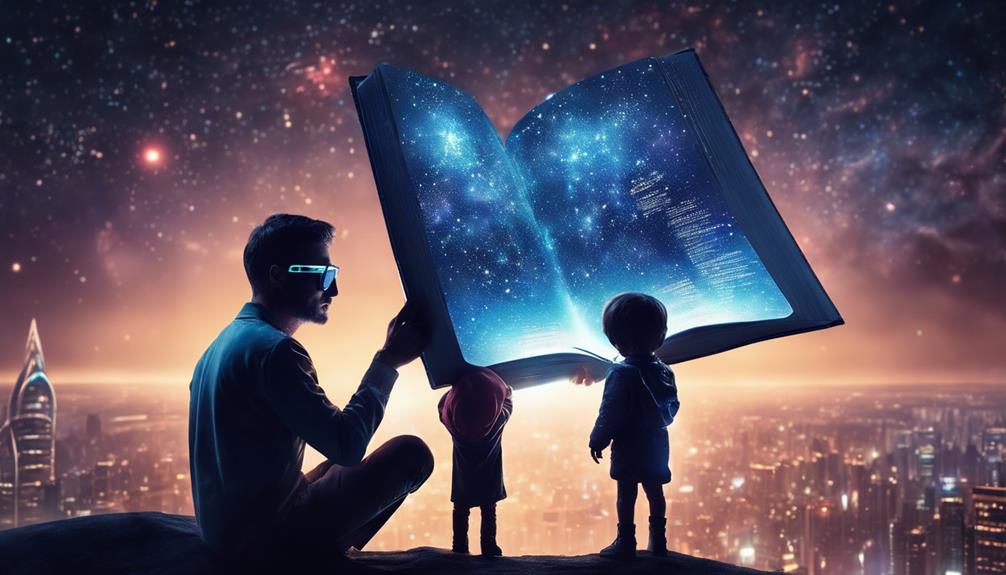
Sci-fi fathers often embody the frontier of ethical dilemmas, navigating complex relationships with their children amid futuristic challenges and technological wonders. They’re not just fighting aliens or pioneering new worlds; they’re grappling with the moral intricacies of parenting in environments where the rules have yet to be written.
These characters offer a unique lens through which we can explore the evolution of fatherhood ideals, reflecting societal hopes and fears about the future of technology and its impact on family dynamics.
You’ll notice that these fathers are frequently positioned at the intersection of humanity and innovation, tasked with reconciling their protective instincts with the demands of survival in uncharted territories. Their stories probe the depths of paternal love, testing its limits against the backdrop of scientific marvels and existential threats. This narrative approach not only enriches the sci-fi genre but also invites you to ponder the essence of fatherhood in a world where the boundaries between human and machine, natural and artificial, are increasingly blurred.
The Comic Book Dad
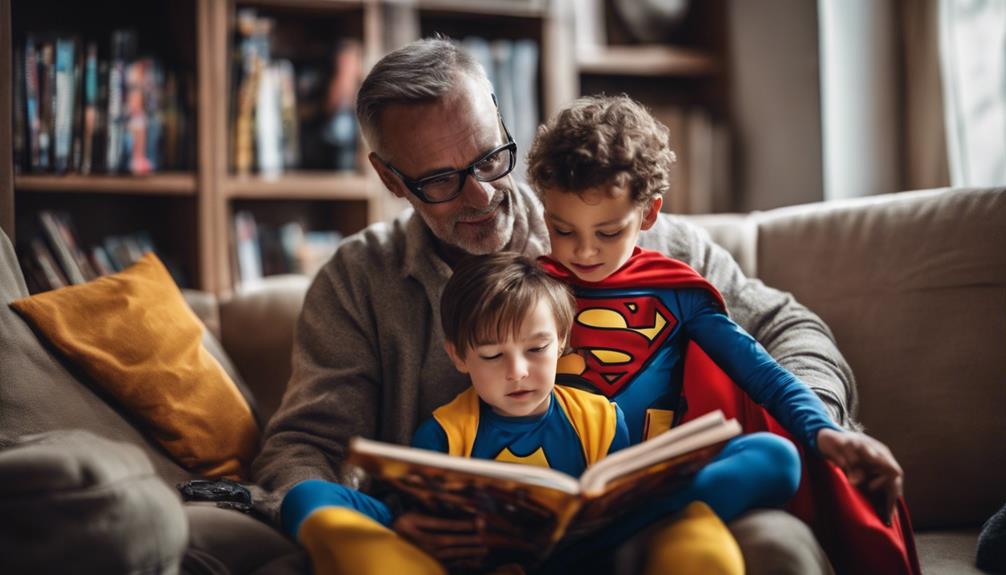
Comic book dads, from the streets of Gotham to the sprawling landscapes of Asgard, challenge traditional notions of fatherhood through their complex narratives and dynamic relationships with their children. These characters, often draped in capes or wielding otherworldly powers, navigate the dual responsibilities of saving the world and parenting. This duality presents a rich ground for analysis, pushing the boundaries of what it means to be a father.
You’ll find that these fathers often grapple with the legacy they wish to leave for their children, a theme that resonates deeply within the readership. Characters like Tony Stark (Iron Man) balance the weight of their own imperfections with the desire to guide their successors away from similar pitfalls. Similarly, the God of Thunder, Thor, illustrates the tumultuous relationship with his father Odin, reflecting on themes of power, responsibility, and redemption.
Reality Vs. Fiction
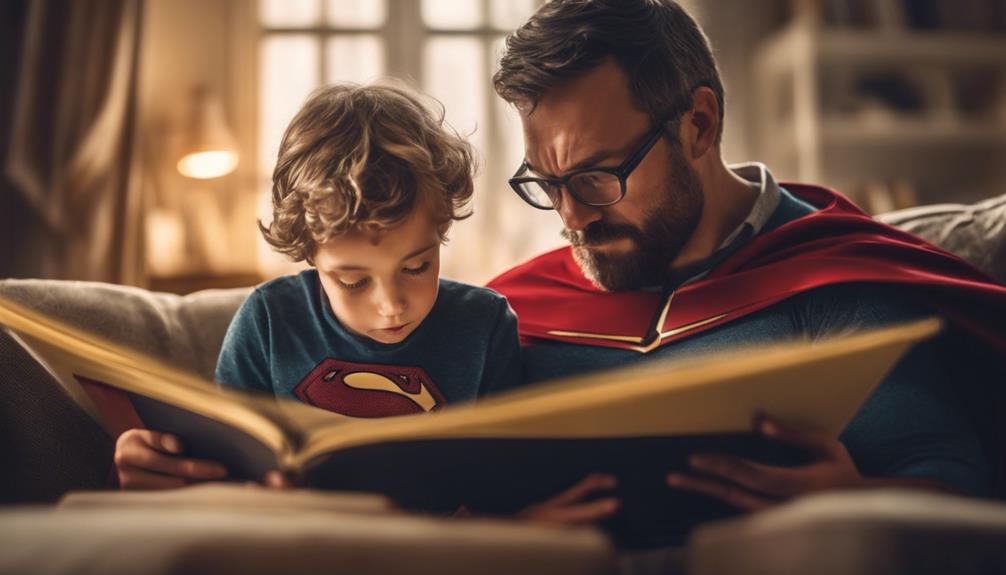
While comic book dads offer a thrilling escape, real-life fatherhood lacks the capes but not the complexity, inviting a critical comparison between these fictional portrayals and the tangible experiences of dads in our world. Fiction often polishes the rough edges of parenting, presenting fathers who juggle their roles with supernatural ease or resolve familial conflicts with a heartwarming epiphany. This narrative convenience overlooks the nuanced challenges that real fathers face daily, from the financial pressures of providing for a family to the emotional labor of supporting children through their developmental milestones.
Moreover, fiction frequently indulges in the trope of the absent or emotionally distant father, only to redeem him through a grand, transformative gesture. This oversimplification doesn’t just skew public perceptions; it undermines the value of consistent, mundane acts of love and responsibility that define real fatherhood. In reality, fatherhood is less about dramatic redemption and more about the day-to-day dedication to one’s family.
Impact on Society
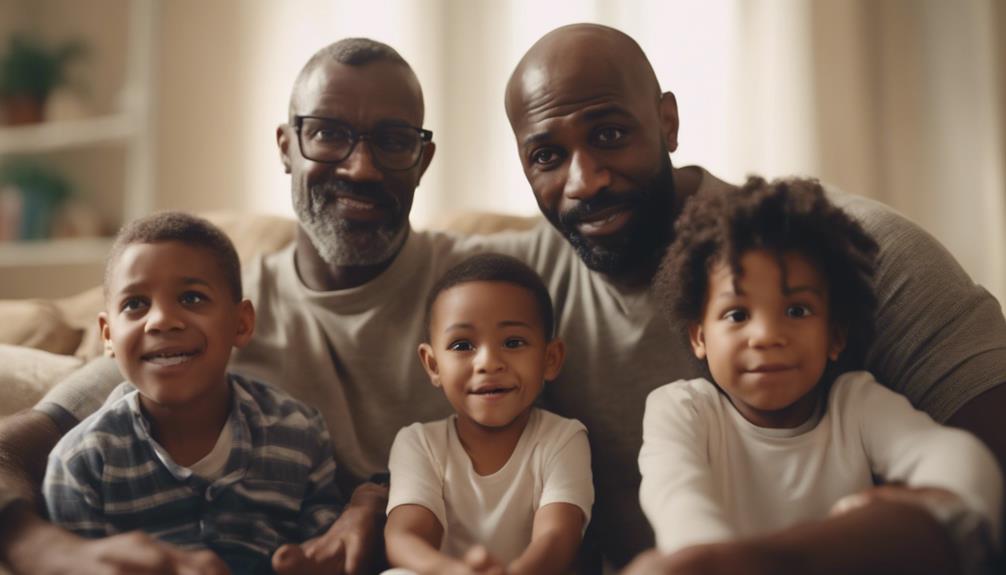
Exploring how fictional portrayals of fatherhood influence societal expectations reveals a complex web of impact on real-world parenting norms and values. You mightn’t initially see the connection between the dads you encounter in your favorite novels or films and the ones you meet at the school gates or in the workplace. Yet, the fiction that entertains you also subtly shapes your perceptions of what fatherhood should look like. It’s a form of soft power that molds societal views without overt persuasion.
This continuous stream of idealized or flawed father figures creates a benchmark. You’re absorbing these narratives, consciously or not, and they’re affecting your expectations of fathers in reality. When these fictional portrayals lean towards extremes—either the infallible hero or the absent failure—they skew your understanding of the nuanced nature of real-world fatherhood.
Critically, this doesn’t just influence individual expectations but also affects policy and societal norms around fatherhood, from parental leave to the stigmatization of single fathers. The challenge for innovators in literature and film is to present fatherhood in a way that reflects its rich complexity, encouraging a more nuanced societal understanding that can foster positive change.
Conclusion
Exploring how dads are shown in books and movies is fascinating. We see everything from tough guys to tender fathers. This mix shows us how society’s view of dads has changed and also shapes our ideas about fatherhood.
What are your thoughts on how fatherhood is portrayed in media? Have you noticed any changes or stereotypes? Share your experiences below and don’t forget to spread the word about our blog, Modern Dads, on social media!
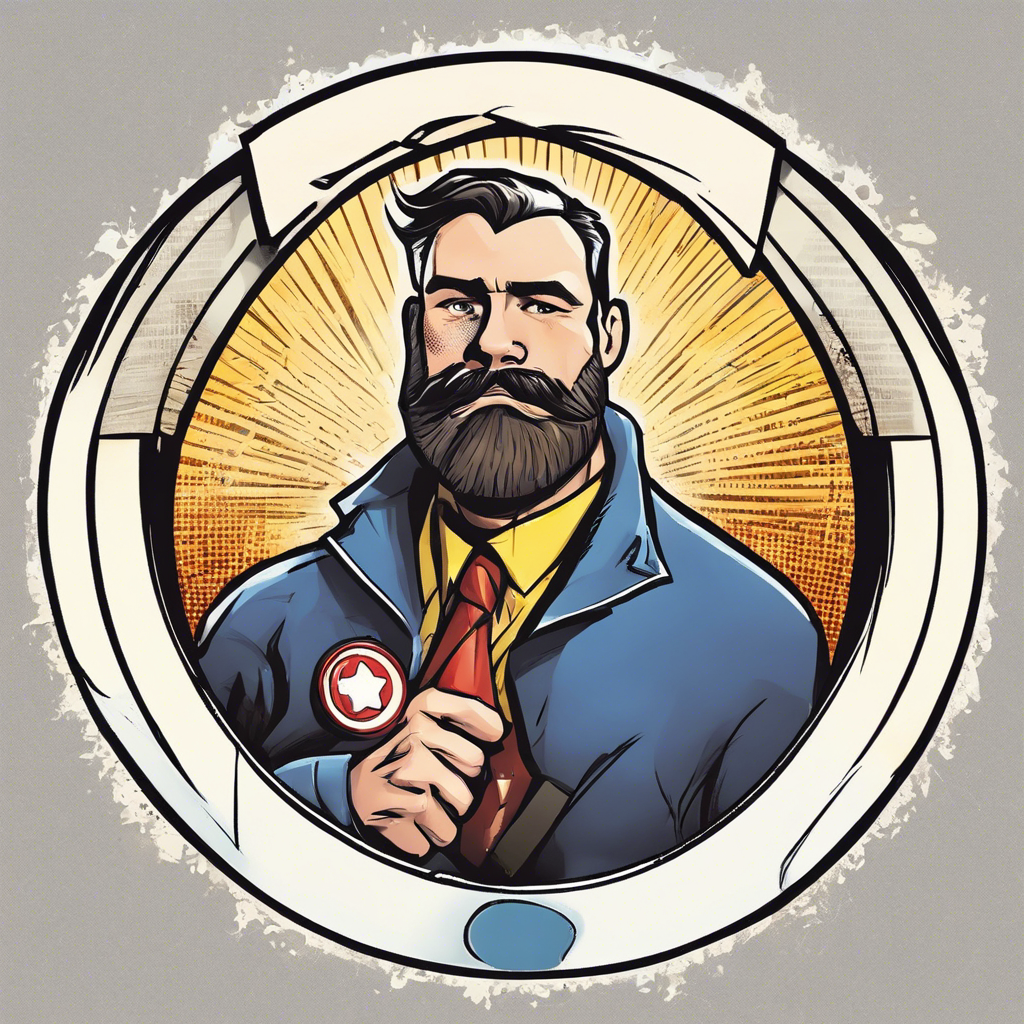
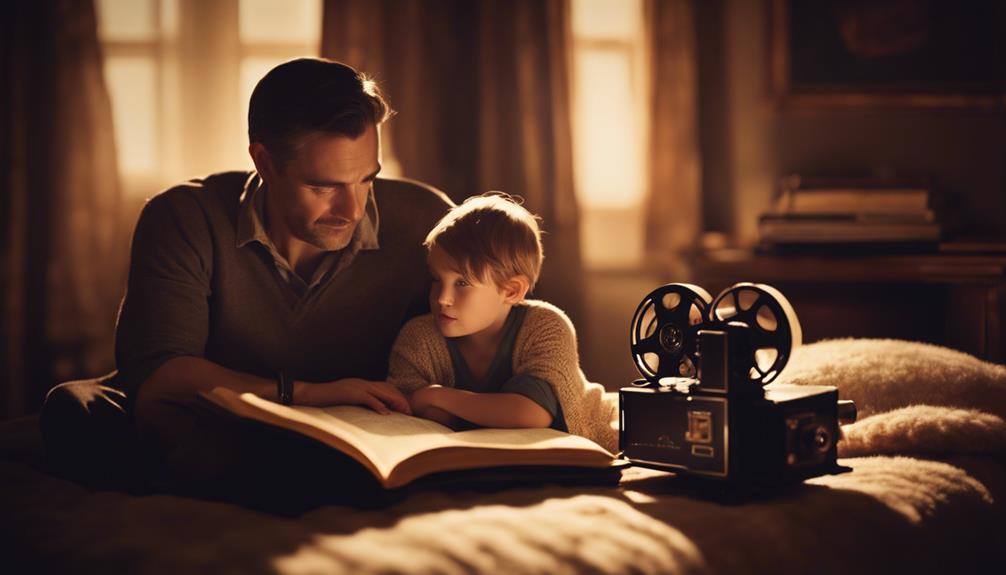
Leave a Reply